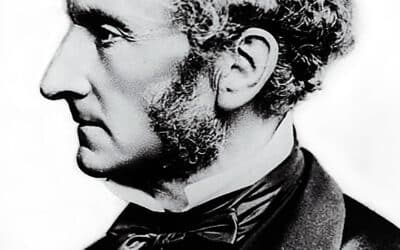“When you tear out a man’s tongue, you are not proving him a liar, you’re only telling the world that you fear what he might say.”- George R. R. Martin
The authoritarian nature of the Soviet Union has been buried by apologist revisionism and has been romanced in the upsurge of sexy depictions of the Cold War. It’s a fondness for a past that never really existed. For its victims it was grim and chilling period of repression. The Stalinist era is one of dystopian horrors, genocide and gulags with centrally planned nightmares converging into a monstrous state headed by a dictator that was saved by the bloodiest war in human history. A period of uncertainty emerged after Stalin’s death, while the promise of reforms spirited the energies of the people and the intellectuals. At the 1956 20th Congress of the Soviet Communist Party, Stalin and his years of terror were condemned. A glimmer of hope emerged and writers wrote and unveiled the works that they had hidden during the dark years under Stalin.
For Russians, censorship and prohibited literature was not an exclusively Soviet era limitation. The first Russian book indexing prohibited writing goes all the way back to 1073 and insecure, ruthless leaders have imposed versions of censorship ever since. The 19th century was also a period where certain pamphlets containing speeches and essays that condemned the Tsar or questioned the status quo were banned. After the 1905 failed revolution, greater rule was imposed, including more censorship. Many of the heroes of the communist revolution were themselves victims of the censor and would go on to enforce their own censorship once they became the rulers. Under the tyranny of Stalin a prison state emerged and a cloud of death loomed throughout as thoughts and words became a very dangerous act.
Alexander Solzhenitsyn is one of the greatest writers in history. Arrested in 1945 while he fought in the “Great Patriotic War,” his crime was sharing his thoughts in 1940 about the Soviet system and insulting Stalin. The punishment could only confirm his condemnation and would provide fuel for his future writing. His experiences in a hard labor prison for eight years would not only give the world great works, but The Gulag Archipelago would also provide a voice and vindication for the many victims of the Soviet state.
Given relative literary freedom in the decade after Stalin’s death, writers and editors probed the boundaries of allowable opinion. It was a frontier of thought and expression that delved into dangerous territory, not only at the time but for future repercussions, as artists and writers explored and experimented in what became known as the Khrushchev “Thaw.” It was an era where the officials were uncertain as to what they could censor and punish. The authoritarians that had cut their teeth and ruled with omnipotence under Stalin still existed but they lacked the cultural moment to exercise their sinister instincts. Unfortunately, that time would return.
Boris Pasternak completed his novel Doctor Zhivago after over forty years of work. In 1956 he was able to reveal it. In 1957, after Italian Communist Party journalist Sergio D’Angelo tracked down Pasternak and received a copy of the manuscript in hopes of publishing it outside of Russia, Pasternak told him, “You are hereby invited to watch me face the firing squad.” The book was published in Italy that same year. Pasternak was nominated for a Noble Prize in literature the year after. The book was soon criticised by the Soviet authorities for its pro-individualist sentiments and criticism of Stalinism, collectivization, and general anti-Soviet tone. Communists the world over condemned the book and hate mail (along with death threats) were directed at Pasternak.
Doctor Zhivago remained popular and would go on to be made into a movie. The book was also used as a CIA prop as the agency purchased many copies and circulated them to defy the Soviet authorities. The book was no longer a story about individuals in a fictional setting but an emblem of division. It was a predecessor of Salman Rushdie’s Satantic Verses, which drew calls for his death from extremists in the Islamic World while simultaneously he became a champion for free speech advocates and atheists alike. Pasternak’s book was unable to stand on its own as a literary work, and instead would become a pariah piece criticising an ideology of centrally planned authoritarianism.
And in 1962 Solzhenitsyn’s One Day in the Life of Ivan Denisovich was published in the literary journal Novy Mir, 95,000 copies were instantly sold. The work would later become banned and unprintable inside the Soviet Union, except in illegal typescript where it was widely circulated in secret along with other works. The book was about one day inside a labour camp as experienced by Ivan, it revealed more about the cruel system and institutions than any statistics have or could. Solzhenitzysn would become famous outside of the Soviet world and would himself also win a Noble Prize for Literature. His work becoming less available into the 1960s from within the Soviet Union and his status as a writer negated over time as he had become controversial and by 1966 when his new piece ‘Cancer Ward’ was ready the editor of Novy Mir was reluctant to print the work without the support of the Soviet Union of Writers, the ‘thaw’ had ended.
In 1965 two Soviet authors Andrei Sinyavsky and Yuli Daniel had been arrested for publishing their works in the West under fake names. Immediately the Soviet media attacked them and ran their names through dirt. In early 1966 both writers were tried and sentenced to suffer in prison camps. The State and its officials had shown its hand, the repression had returned and the two writers were a famous example of any who would dare to express themselves. Even as Russian writers and literature was being celebrated the World over the message and tone of the work may have varied, none of it was so dangerous that those outside of a specific ideology and government felt so threatened that they needed to edit or prohibit it.
The Master and Margarita is a book that in its creation has a fantastic story, the authour Mikhail Bulgakov in 1940 burned the completed copy after having spent 12 years writing it. In his later years Bulgakov wrote his work again and around 1966 after his death a heavily censored version of the book was published. An underground version without the edits soon circulated and the complete version of the book was available in 1973 and a final version was released in 1989. The spiritual and Christian themes were a dangerous threat to the Soviet officials. Lolita by Vladimir Nabokov was another in many books also denied publication in the Soviet Union. However it was also banned in Australia, France, the UK and New Zealand and other territories, the original manuscript was refused by several publishers. The romantic and lustful interests of an adult man towards a young girl pushed taboos that transcended Soviet interests but challenged the moral sensibilities of supposedly liberal and free nations. The idea of adults reading words of such a nature would raise the ire of censors and officials the world over.
Soviet typewriters and printing machines had their typographic samples collected from the factory when they were manufactured and then stored in a government directory. The micro features of the typewriter is then used like a finger print. When a typewriter was purchased it is registered to the owner. This then would allow the officials to determine which machine was used to print the offending works. Some East German and Warsaw Pact typewriters were not subject to such a directory and constraints. So many Soviet citizens purchased some of these machines, free of the registry process and along with smuggled in Western typewriters a dissident activity known as Samizdat (‘self-published’) was able to copy texts and distribute them avoiding the Soviet censors.
Those involved in the illegal reading market also used X-ray film to conceal works and found ingenious ways of hiding banned books or pages inside of the accepted-legal books. It was not just works written inside of the Soviet Union that were banned, many books from the World over, from HG Wells and George Orwell to political and religious texts that may challenge the minds of the reader or raise thoughts that could not be controlled by the State.
The Samizdat typewritten copies covered a variety of topics and genres from poetry, unpublished works to controversial pieces on politics, religion and nationalism. Despite the censors and official media, a lot of people wanted to be exposed to different views and perspectives. Whether they agreed or not, the proletariat was hungry for information. The official lies did less to conceal, it ultimately revealed the repression and shifting narratives of the Soviet state. What was acceptable could suddenly change and then the past officially scrubbed or adjusted to fit the States contemporary necessity. When Soviet citizens were able to read books like Doctor Zhivago and see just how benign its content was, it would only serve to prove the over reaction of the censors and the insecurity of the State itself.
Contraband works made available by Samizdat nourished a liberal instinct and helped to subvert the tyranny of the State, along with rock n roll, blue jeans and the continued economic idiocy that was felt by the common person daily. It is the writer who has the ability to put up a mirror on the system or society that is often the most threatening. The reflection of truth is far more dangerous than any lies. And this is where men like Alexander Solzhenitsyn became so dangerous to the Soviet government that at times they were uncertain how to deal with him. The crime in the past was in condemning the present and in the post-Stalin world it was in comparing the present to that past. Solzhenitsyn and other Russian writers fought this battle against the censors and the officials.
Through the 1970s the Soviet authorities were waging a losing battle against those writing and spreading the contraband. By 1985 over one million items of prohibited material existed deep inside the ‘restricted access collection’ of the Lenin State Library. Under the reforms of Mikhail Gorbachev, Perestroika and Glasnot reversed many of the ancient censorship and allowed artists and intellectuals to express themselves, within certain constraints. Some liberalization does not mean complete freedom. The spigot seemingly had opened up.
In the post-Soviet world, Russia like many other countries has its own nuanced sensibilities when it comes to censorship. Inside of modern Russia the government itself does not need to impose traditional bans on books as it could have done in the past, instead the publishers do so for the state. Russia is again dominated by the cult of personality, Vladimir Putin. No where near as terrible as Joseph Stalin, though under his leadership Russia is not a free society. A cultural homogenization exists, where private entities narrow the lanes of acceptable opinion and omit, criticise or banish anything outside of them. A form of cultural nationalism and a vanguard against any subversive ideas or immoralities that may corrupt or hinder Russia.
This is also a modern trend of large corporations and companies all over the world, not limited to publishing books and magazines. The modern Russian censors are fixated on prohibiting the publishing of materials about suicide, homosexuality, some religious texts and in some cases criticisms of Stalin himself, as was the case with the film and graphic novel, The Death of Stalin. A black comedy based on true events just before and after the death of the dictator revealing how deadly men were at times self obsessed buffoons despite ruling over millions.
Though it is in many cases not as bad as the Soviet era modern Russia has its share of direct and self imposed censorship. Books relating to the usage of drugs such as Apocalypse Culture and The Ketamine Necromance have been banned and copies destroyed. Just as hard to publish are children’s books, where government and non-government actors heavily control such literature. It is not only the content of these books, the font and format that are dictated by the Russian government.
For the state and those interested in controlling others, it is not just the adult’s mind but especially those of children that are important to steer. The family, the school or even the child themselves does not come into consideration, all are determined to be inferior in their own learning and intellectual development. It is from the state and for the state that becomes priority. Such a miserable blandness of cultural porridge is ensured by the brain trust that adores authority. And the authority itself.
As technology and media evolved radio sets, cassette tapes and then video tapes all did the rounds and introduced the citizens behind the Iron Curtain to various perspectives that differed to their own. It helped to grow ideas and ideals, to expose them to the other world that existed beyond the bleak one of control and Soviet utopianism. It is for the officials and central planners of modern regimes whether those of China and North Korea or even in democracies to massage or deny any alternative narrative. It is the imperial nature of those who are in control and those who benefit from such a system, to remove the alternative thoughts and works. To suppress literature and to condemn it as dangerous or immoral. To treat the citizen as a child like subject unable to make decisions for themselves.
What does it say of a government or society that makes words contraband? Whether a novel such as Doctor Zhivago is not merely a threat to the Soviet Union but communism itself exposes a fundamental flaw in the ideologies and states need to force and repress. In a free market, it is in the access to all forms of thoughts and expressions that can either confirm or condemn freedom itself. It is thanks to freedom that one can share and consider such thoughts. Inside a Soviet system one is deterred and denied from speaking outwardly about the only method of rule. Alternatives are the enemy, a deadly insecurity exists in those past and present who would inflict their views absolutely on others. Then to imprison who would dare to write something contrary, to ban or scrub their words, rather than to argue and to disprove.
The world is a better place thanks to the words of Solzhenitsyn and Pasternak. It is not a better place for the labor camps that imprisoned or the censors that sought to rid words written by such men. For the officials of the Soviet Union did what they needed to preserve the system and to maintain authority. That in itself was a righteous calling. To have a society of one or very few voices is the ore of iron rule, and it is impressive in its frightening scale that such an empire lasted so long and ruled over so many lives. Banning words (not just books and pamphlets) is not unique to the Soviet Union, but they do set an example for reflection. To make art and writing contraband only creates dissent and dissidents. The dissidents’ voice will whisper wherever the tyrant rules and in time they will yell until tyranny itself whimpers. Write on comrades!








